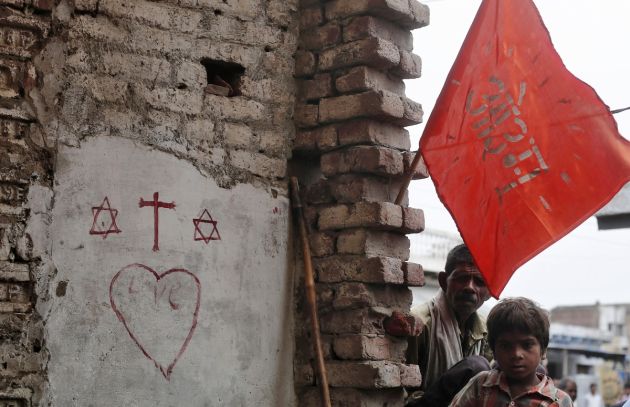Extremist Hindus 'forced reconversions' spark Indian Christians' alarm

At least 23 people, who embraced Christianity about two years ago in India's northern Uttar Pradesh state, have been reconverted to Hinduism, say Christian leaders who have expressed alarm over such action.
In particular, Christian community stalwarts have said that the conversions were being spearheaded by groups described as Hindu extremist associations, such as Sant Ravidas Dharma Raksha Samiti and Sri Gram Devta Pujan Samiti.
The so-called reconversion ceremony took place on September 9 at Trilochan Mahadev temple in Uttar Pradesh.
The reconversion proceedings had been part of a "homecoming program" organized by the two groups.
Sajan K. George, president of the Global Council of Indian Christians (GCIC), criticized the asserted forced conversions, which began two months earlier.
"For some time now, Sant Ravidas Dharma Raksha Samiti has been indulging in these so called home coming projects in Uttar Pradesh," George told Asianews.it in an interview.
"In August 2012, they got 315 people to renounce their Christian faith for Hinduism in Varanasi. In 2011, the same group reconverted about 350 people in Jhamaria village," he noted.
"This group preys on the simplicity of the people and indulges in hate propaganda against Christianity."
George also pointed out that the actions of the groups ran counter to the spirit of the Indian Constitution.
His sentiments were echoed by Mumbai's Catholic Archbishop Oswald Cardinal Gracias.
"Such events call for introspection. We have to analyze our pastoral mission, and question its adequacy as well as our spiritual preparation," Gracias wrote to Asianews.it.
"Obviously, it is urgent to examine these cases to see if they are really episodes of conversion/reconversion or fabrications instigated by ideological groups who seek to sow divisions."
The archbishop said the country's laws have been tolerant of other religions, but the latest incidents highlight the importance of interreligious dialogue in India.
"Such sporadic episodes remind us of the urgency of interreligious dialogue in our multi-religious nation," he said. "Through dialogue, fear, hostility and suspicion may give way to friendship, or at least tolerance."